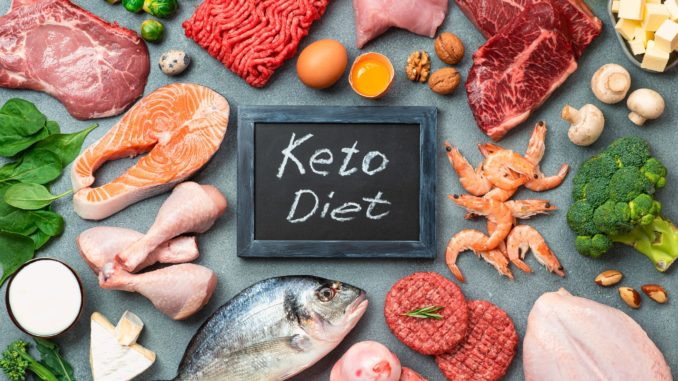- Empty cart.
- Continue Shopping
The Benefits of Ketogenic Diet for Weight Loss

The ketogenic diet, often referred to as “keto,” has gained popularity as a weight loss strategy. It involves drastically reducing carbohydrate intake and replacing it with healthy fats.
1. Rapid Fat Loss
– Promotes Ketosis
By drastically reducing carb intake, the body switches from using glucose for energy to burning stored fat for fuel. This metabolic state, known as ketosis, accelerates fat loss.
– Reduced Insulin Levels
A keto diet helps stabilize blood sugar levels, leading to lower insulin production. This, in turn, facilitates fat breakdown and weight loss.
2. Enhanced Satiety and Reduced Appetite
– Increased Protein and Fat Intake
Protein and healthy fats are highly satiating, helping you feel full and satisfied after meals. This reduces the likelihood of overeating or snacking on high-calorie, low-nutrient foods.
– Regulation of Hunger Hormones
The keto diet can lead to decreased levels of ghrelin, the hunger hormone, and increased levels of leptin, the hormone responsible for feelings of fullness.
3. Improved Metabolic Health
– Lowered Triglyceride Levels
Following a ketogenic diet has been shown to reduce levels of triglycerides, a type of fat in the blood associated with heart disease risk.
– Increased HDL Cholesterol
Keto can lead to elevated levels of high-density lipoprotein (HDL) cholesterol, often referred to as “good” cholesterol, which is associated with a reduced risk of heart disease.
– Improved Blood Pressure
Studies have suggested that the keto diet may help lower blood pressure, a crucial aspect of overall metabolic health.
4. Better Blood Sugar Control
– Reduced Insulin Resistance
By minimizing carbohydrate intake, the keto diet can enhance insulin sensitivity, making it easier for cells to absorb and utilize glucose effectively.
– Stabilized Blood Sugar Levels
Eating fewer carbohydrates helps prevent spikes and crashes in blood sugar levels, providing a steadier source of energy.
5. Targeted Fat Loss
– Visceral Fat Reduction
Ketosis specifically targets visceral fat, the type of fat stored around organs. This deep-seated fat is associated with various health risks.
– Preservation of Lean Muscle Mass
A well-formulated keto diet, coupled with sufficient protein intake, supports the preservation of lean muscle mass while primarily burning fat for energy.
6. Enhanced Mental Clarity and Focus
– Steady Energy Levels
In ketosis, the brain uses ketones as a steady source of energy, providing mental clarity and focus without the energy fluctuations associated with carb-heavy diets.
– Reduced Brain Fog
Many individuals report experiencing improved cognitive function and reduced brain fog when following a ketogenic diet.
7. Potential to Reduce Inflammation
– Anti-Inflammatory Effects
Some research suggests that the keto diet may have anti-inflammatory properties, which can be beneficial for individuals with conditions associated with chronic inflammation.
In conclusion, the ketogenic diet offers a multitude of benefits for weight loss and overall health. However, it’s crucial to approach this dietary approach with a well-balanced and informed perspective. Consulting a healthcare professional or registered dietitian before starting any significant dietary changes is recommended. Remember, the key to successful and sustainable weight loss is a combination of a healthy, balanced diet and regular physical activity.








